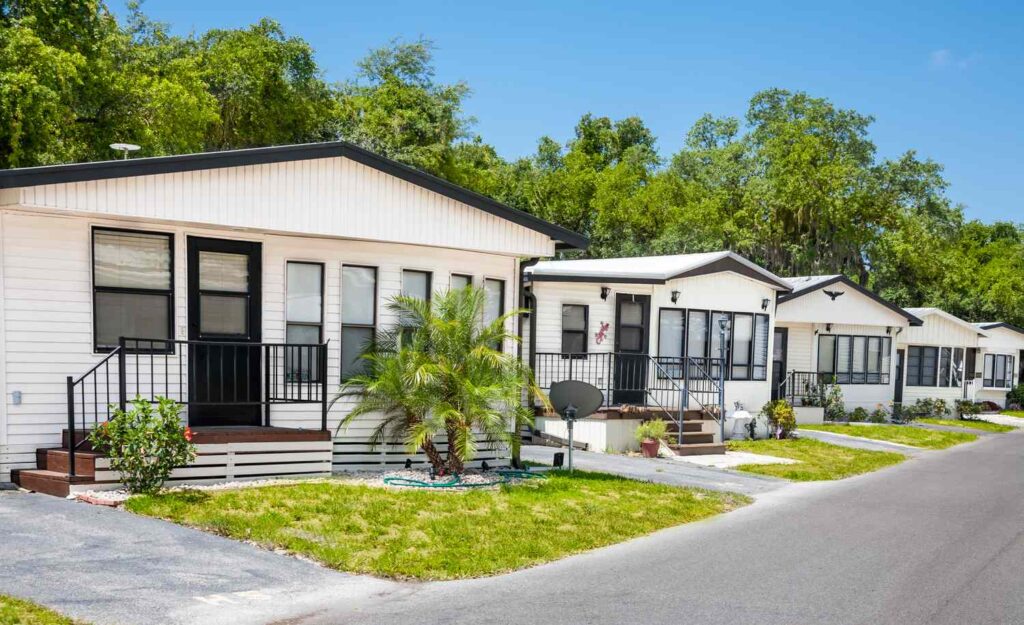
Renewable energy in modular homes: A Sustainable Living Choice
In recent years, there’s been a growing interest in renewable energy in modular homes. Modular homes often fast-tracked in construction and energy-efficient designs, are an attractive option for those prioritizing sustainable living. This article delves into how these homes integrate renewable energy and the benefits they bring.

What are Modular Homes?
Modular homes are prefabricated buildings constructed in sections. These homes can be assembled quickly and come with the advantage of customization. Another benefit is their eco-friendly nature. To know how they resist climate issues, explore our section on modular resilience.
Understanding Renewable Energy
Renewable energy refers to energy from natural sources that are replenishable. These include solar, wind, and geothermal sources. Integrating such energy into homes reduces carbon footprints, and when combined with the unique structure of modular homes, the benefits multiply.
Solar Energy in Modular Homes
One of the most common types of renewable energy used in modular homes is solar power. Solar panels can be mounted on the roofs, capturing sunlight and converting it into electricity. It’s an efficient way of reducing electricity bills and promoting sustainability. For a deeper dive into this efficiency, click here.
Wind Energy Prospects
Although solar is most common, areas with ample wind can benefit from wind turbines. Even small-scale wind energy solutions can significantly lower energy costs. Exploring modular innovations can highlight future-proof solutions.
Geothermal Energy Benefits
For consistent energy, geothermal solutions tap into the earth’s heat. Modular homes equipped with geothermal systems offer stable, eco-friendly energy, cutting down on traditional energy needs.
Advantages of Renewable Energy in Modular Homes
Besides environmental benefits, cost savings in energy consumption are substantial. Moreover, these homes often qualify for energy tax credits, further incentivizing homeowners. Discover more benefits at our low-carbon advantage page.
Design Flexibility and Customization
Modular homes not only incorporate renewable sources effectively but also offer flexibility in design. This means homeowners can prioritize their energy needs from the design stage, ensuring maximum efficiency.
Prefabricated Efficiency
Being prefabricated, these homes ensure minimal waste during construction. Every module is crafted with precision, ensuring sustainability without compromising on design. Witness some green designs.
Challenges to Consider
While they are beneficial, modular homes with renewable energy installation require initial investments. Choosing the right energy system according to regional availability must align with cost considerations.
Maintenance Costs
Maintenance is crucial in ensuring longevity and efficiency of energy systems. Homeowners should be prepared to conduct regular checks and updates, especially for systems like solar panels or wind turbines.
Future Outlook
The trend towards sustainable housing models is set to grow. As technology advances, so will the potential of renewable energy in modular homes. In the future, we can expect more integration of AI and smart technology to further efficiencies in energy consumption.
For more insights, explore our section on small yet mighty designs.

FAQs
- What makes modular homes sustainable? Modular homes are made using precision, reducing waste. They often incorporate renewable energy, lowering environmental impact.
- Can modular homes support all types of renewable energy? While common options like solar are easily adopted, the suitability for wind or geothermal depends on the location.
- Are modular homes expensive? Initially, they can be, especially with renewable installations. However, energy savings and potential tax credits often offset these costs in the long run.
This article contains affiliate links. We may earn a commission at no extra cost to you.